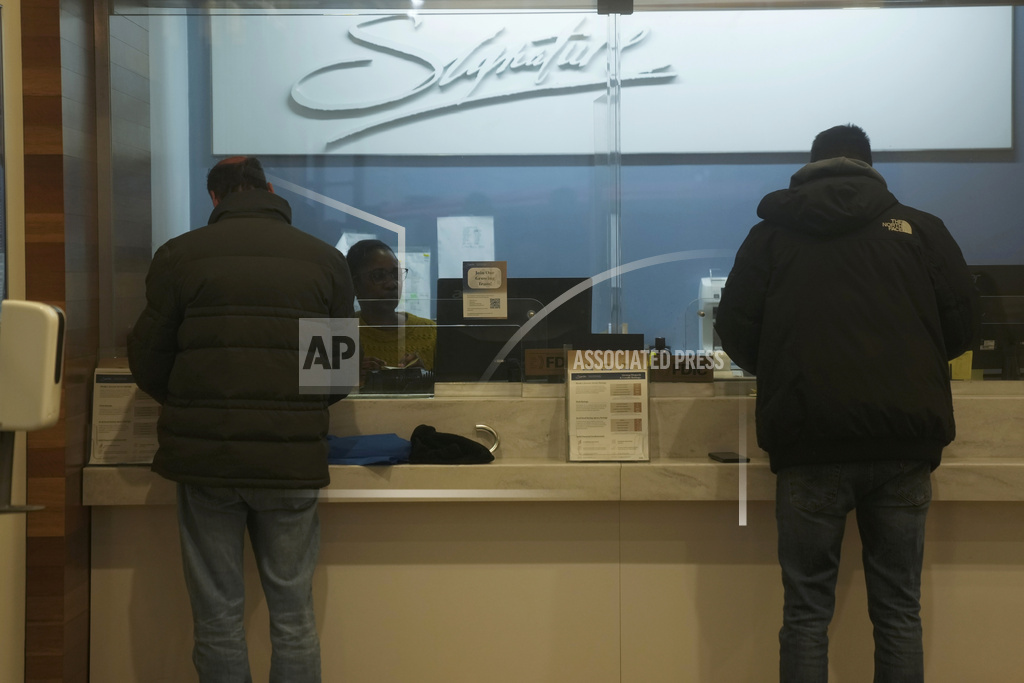In the days that followed the Aug. 2 death of Sgt. Jonathon M. Hunter in Afghanistan, the Columbus soldier’s widow said she felt like she was walking around in a mist.
But there was one thing Whitney Hunter specifically remembers that she was told by her military-assigned casualty officer in early to mid-August, she said.
“I was told the White House had instructed him to let me know I should be prepared for a call from the president within the next couple of days,” the widow said. “Obviously, that’s not a phone call you want to miss.”
For the next several days, Hunter, who resides near Fort Bragg in North Carolina, kept her cellphone close and answered it quickly whenever it rang, she said.
[sc:text-divider text-divider-title=”Story continues below gallery” ]
When the anticipated call from President Donald Trump didn’t come within a few weeks, Hunter said she began checking call logs to see if any attempt had been made by the White House to reach her.
“It’s been over two months, and I still can’t find a single attempt to call,” Hunter said Thursday.
Jonathon Hunter died in a suicide bombing attack in Afghanistan, when the 23-year-old was 32 days into his first deployment since joining the Army in 2014.
After Army Spc. Christopher Harris was killed alongside Hunter in a suicide attack, the White House offered to set up a call, said his widow, Brittany Harris.
But the call fell through and no letter came from the president, either, Harris told the The Associated Press.
In recent days, both widows have fielded questions from reporters on what’s become a growing national story — whether President Trump has empathy for fallen U.S. soldiers.
The president first was criticized for waiting 12 days to acknowledge the death of four U.S. soldiers killed in the African nation of Niger.
A second controversy emerged Monday after Trump questioned the protocol of previous presidents, saying “a lot of them didn’t make calls” to widows and surviving families members.
More recently, Trump is said to have told the widow of U.S. Army Sgt. La David Johnson that her husband “knew what he signed up for … but when it happens, it hurts anyway,” said U.S. Rep. Frederica Wilson, a Florida Democrat.
“Families don’t need to be reminded of all that — especially by someone who avoided putting on the uniform,” said Mark Hunter, father of Sgt. Hunter. “I served in the military. I knew what Jonathon signed up for. But I still didn’t think it would happen.”
The White House has called Wilson’s recollection of the president’s words “fabricated.”
Mark Hunter, Jonathon’s father, said a military casualty officer indicated that Trump would call, and the family was let down when he didn’t.
“Disappointed that he at least didn’t call and thank me for my son and our ultimate sacrifice,” Hunter said. “That’s all I wanted to hear. He didn’t have to say nothing else. That’s all I wanted to hear. From him — not the vice president.”
Although recent news reports have stirred up a variety of emotions among Americans, Mark Hunter says it boils down to two simple things in his mind.
“Don’t say you’re going to call, and then don’t,” he said. “And don’t bash another president for something you have not done either.”
“Everyone think it’s about politics, but it is not,” Mark Hunter said. “It’s about respect.”
This has been a particularly difficult month for the soldier’s father.
“Jonathon and Whitney’s wedding anniversary was last Sunday, and my son’s birthday was just four days before that,” Mark Hunter said. “I’m just now realizing I’ll never have grandchildren, and that hurts as much as anything. I’m still going through the grieving process, so I’ve got other things on my mind.”
Although Whitney Hunter did not specifically mention any person or statement, she did say the controversy has become too politicized and insensitive, which only adds stress to the grieving families of fallen soldiers.
“There is never a good time to make negative comments to a widow — by anyone,” Whitney Hunter said.
During a Wednesday interview on CNN, Whitney Hunter said she was honored to meet with Vice President Mike Pence at the transfer of his remains, and that he was a “very genuine human being” and had “shared his condolences.”
Mark Hunter, too, was greeted by Pence at Dover Air Force Base, but what he came away with is different than his daughter-in-law.
“If it wasn’t Jonathon, I don’t know if he would have shown up,” Mark Hunter said. “Since they are both from Columbus, I think Pence felt obligated to be there.”
Trump should have felt the same obligation, since he was only 150 miles away vacationing at Camp David when his son’s remains arrived, Mark Hunter said.
“It would have only been a short helicopter ride,” he said.
Kimberly Thompson, the mother of Jonathon Hunter, was out of town Thursday and could not be reached for comment.
Calling every family member isn’t a presidential tradition. Trump’s recent predecessors have reached out to Gold Star families through letters, private meetings and invitations. For Presidents George W. Bush and Barack Obama, who saw far more war dead on their watch, individual phone calls would have been a time-consuming task. Still, Trump this week used his calls as evidence of his support for the military, suggesting he did more to honor the families than his predecessors did.
“I think I’ve called every family of someone who’s died,” Trump said, then adding, “virtually everybody.” He said it’s his practice both to make phone calls and send letters.
Trump spokeswoman Sarah Huckabee Sanders repeated the claim Wednesday, saying the president “has made contact with all of the families that have been presented to him through the White House Military Office.” She did not say whether that contact necessarily meant a phone call, or only a letter, and she did not address the specifics of why families of some war dead have received neither.
The Associated Press contributed to this report.






